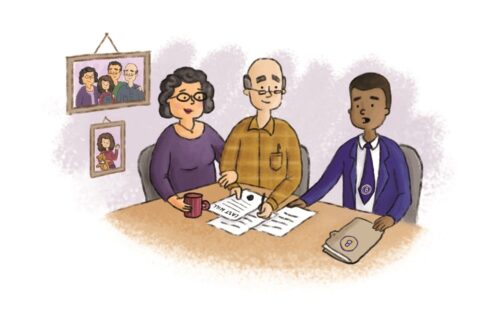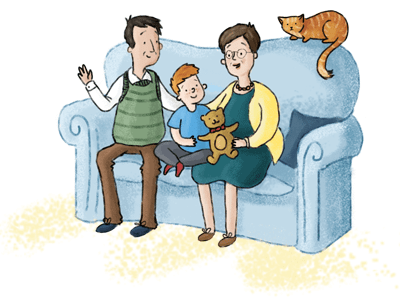
As solicitors we advise on the benefits of having a properly drafted and executed Will to ensure that your wishes are carried out when you pass away.
A Will has various aspects, but one vital part is the appointment of Executors, the people who will administer your estate after your death. Most people will appoint spouse, family or friends, some will appoint a professional such as their solicitor or accountant. It can seem like a privilege and an honour to be asked to be an Executor, but not many people understand the full consequences of what they are consenting to.
It is the duty of the Executor to administer the estate, valuing it for Inheritance Tax purposes and seeing that any tax due is paid. Whilst many people are already aware of this, they do not realise that they may be held personally liable for the Inheritance Tax Bill even if they aren’t a beneficiary of the estate. It is possible to be both an Executor and a beneficiary of an estate.
In 2013, Glyne Harris was made the Executor of a £1.2 million estate. Harris filed the Inheritance Tax Return and paid the initial Inheritance Tax that was due. As a large part of the estate was property, it was possible to pay the Inheritance Tax on the property in instalments. Harris made the mistake of paying the estate out to a beneficiary on the understanding that the beneficiary would settle the remaining IHT bill.
Unfortunately for Harris, the beneficiary swiftly disappeared to Barbados without paying the remaining Inheritance Tax. Harris as the Executor was liable to pay the remainder of the £340,000 tax bill personally. Without the estate funds at his disposal, Harris appealed saying that he should not be liable, however a judge ruled that he is in fact personally liable. HMRC could potentially go after Harris’ own assets including his house. Whilst this is an extreme example of what can go wrong, it shows the responsibilities of being appointed an Executor and the advantage that having a professional can have.
A more common problem for the Executor is how to fund an Inheritance Tax bill when assets have to be sold to fund it. HMRC expect Inheritance Tax to be paid within six months of the date of death. After this time, HMRC will start charging interest on the unpaid tax. The bigger catch is that the Executor cannot sell the assets until probate has been granted.
It is possible to release funds from cash and certain investments to pay the Inheritance Tax bill. If there is a property, then the tax on the property can be paid in instalments. However, you still need to find 10% of the bill within six months of the date of death. Which depending on the value could be more than is available in liquid cash. The tax affairs of a deceased person’s estate can be very tricky to deal with and you should always seek advice if you are uncertain of how to act in your capacity as Executor.
How we can help
Contact Laura Stansfield, Sue Darlington or Susanne Furness in our Wills, Probate & Planning for the Future department to discuss how one of our team of experts can help guide you through this process.
Email:
lstansfield@bromleys.co.uk; sdarlington@bromleys.co.uk sfurness@bromleys.co.uk
Tel: 0161 330 6821
Alternatively, you are welcome to attend any of our free legal surgeries. Please click here for dates and times – No appointment necessary.
The contents of this article are intended for general information purposes only and shall not be deemed to be, or constitute legal advice. We cannot accept responsibility for any loss as a result of acts or omissions taken in respect of this article.











